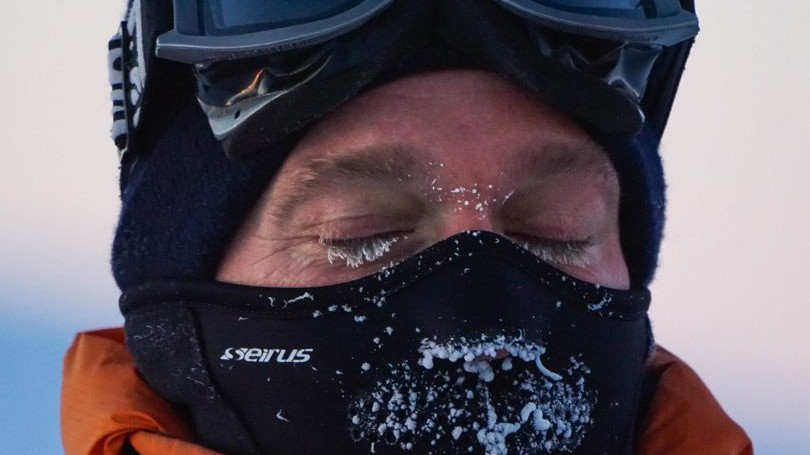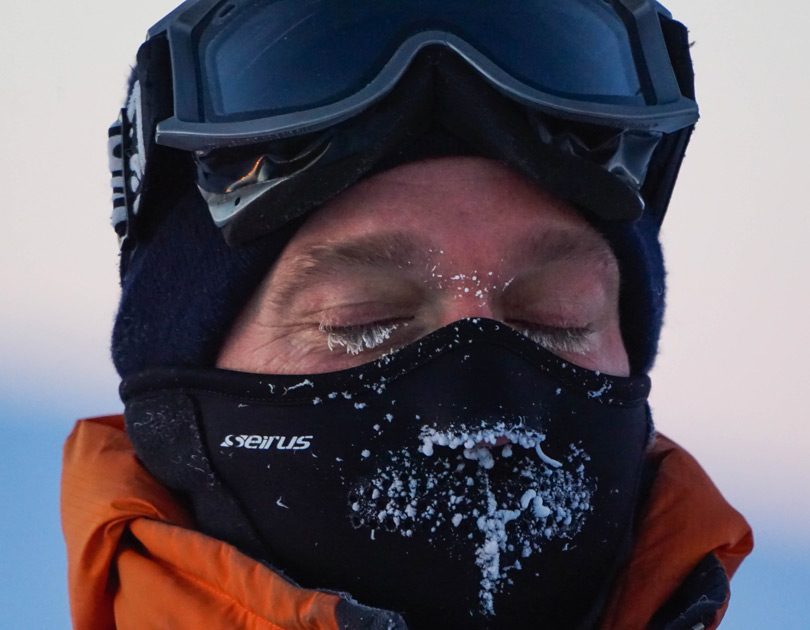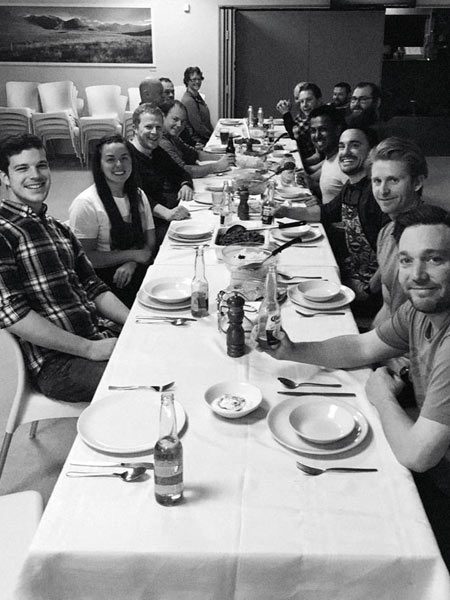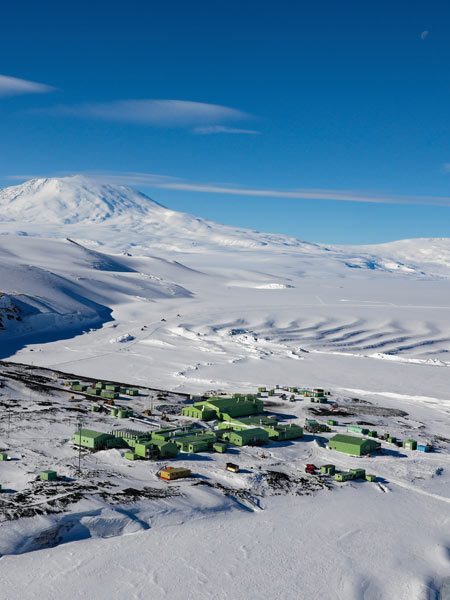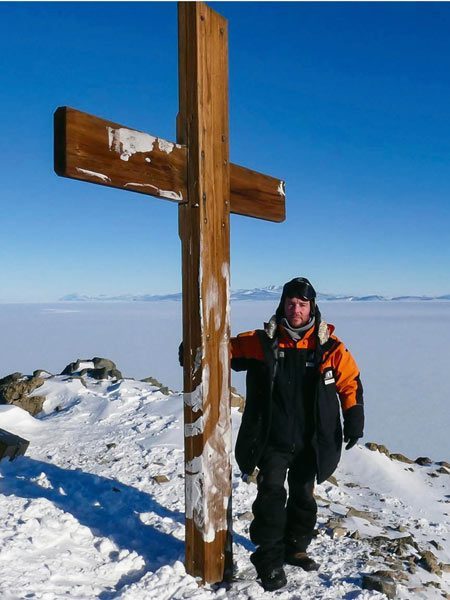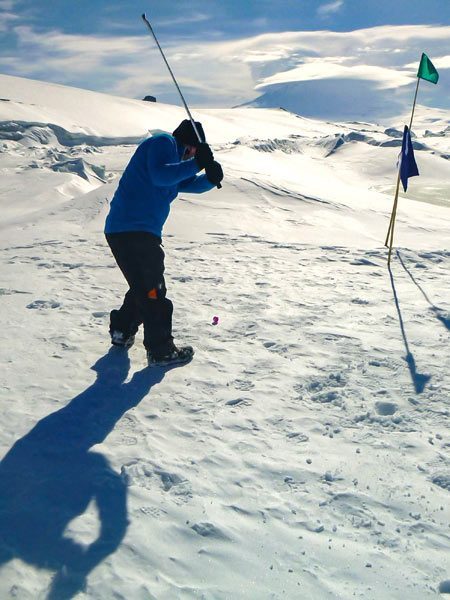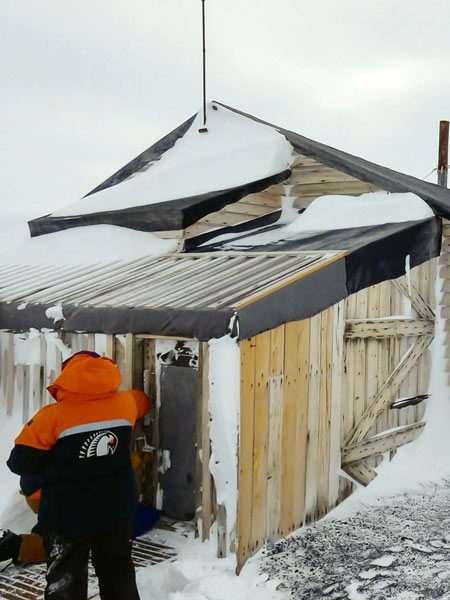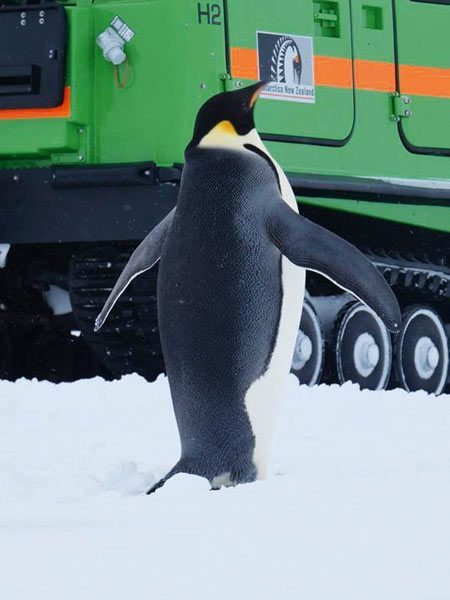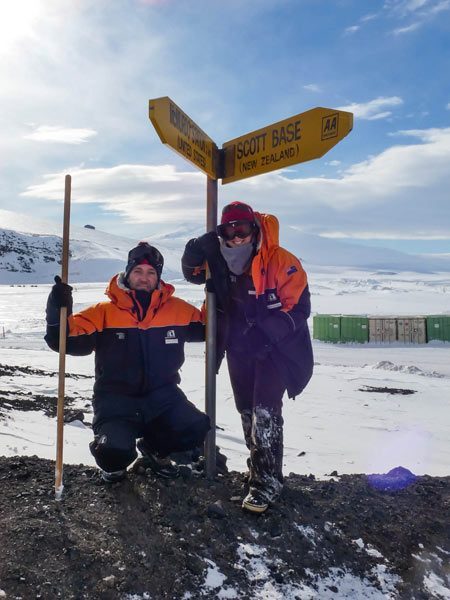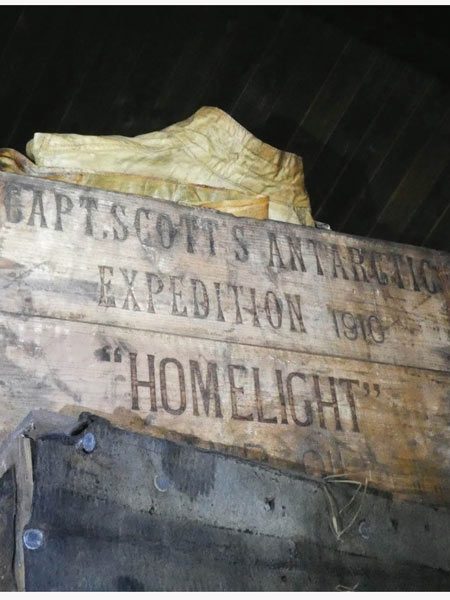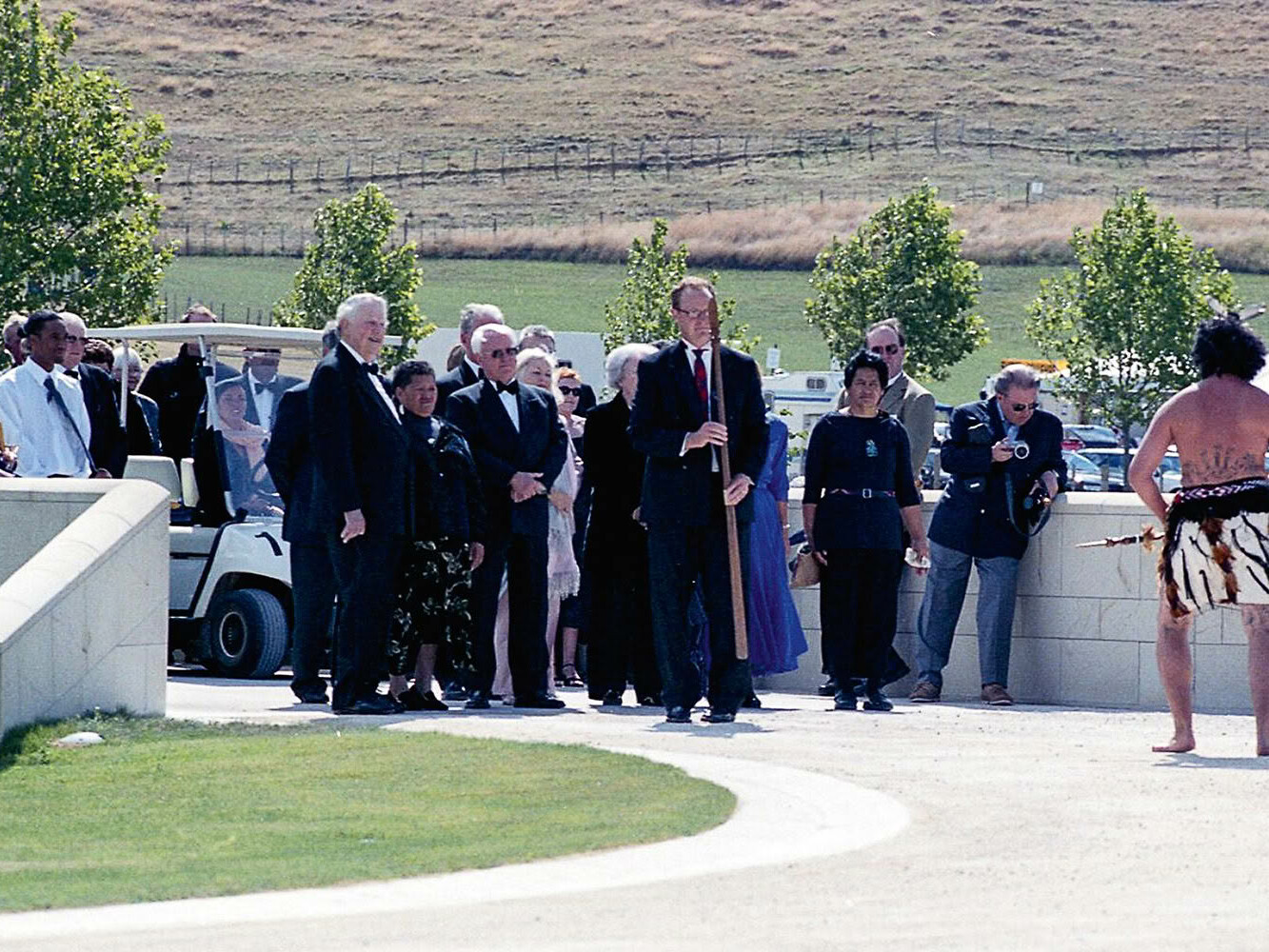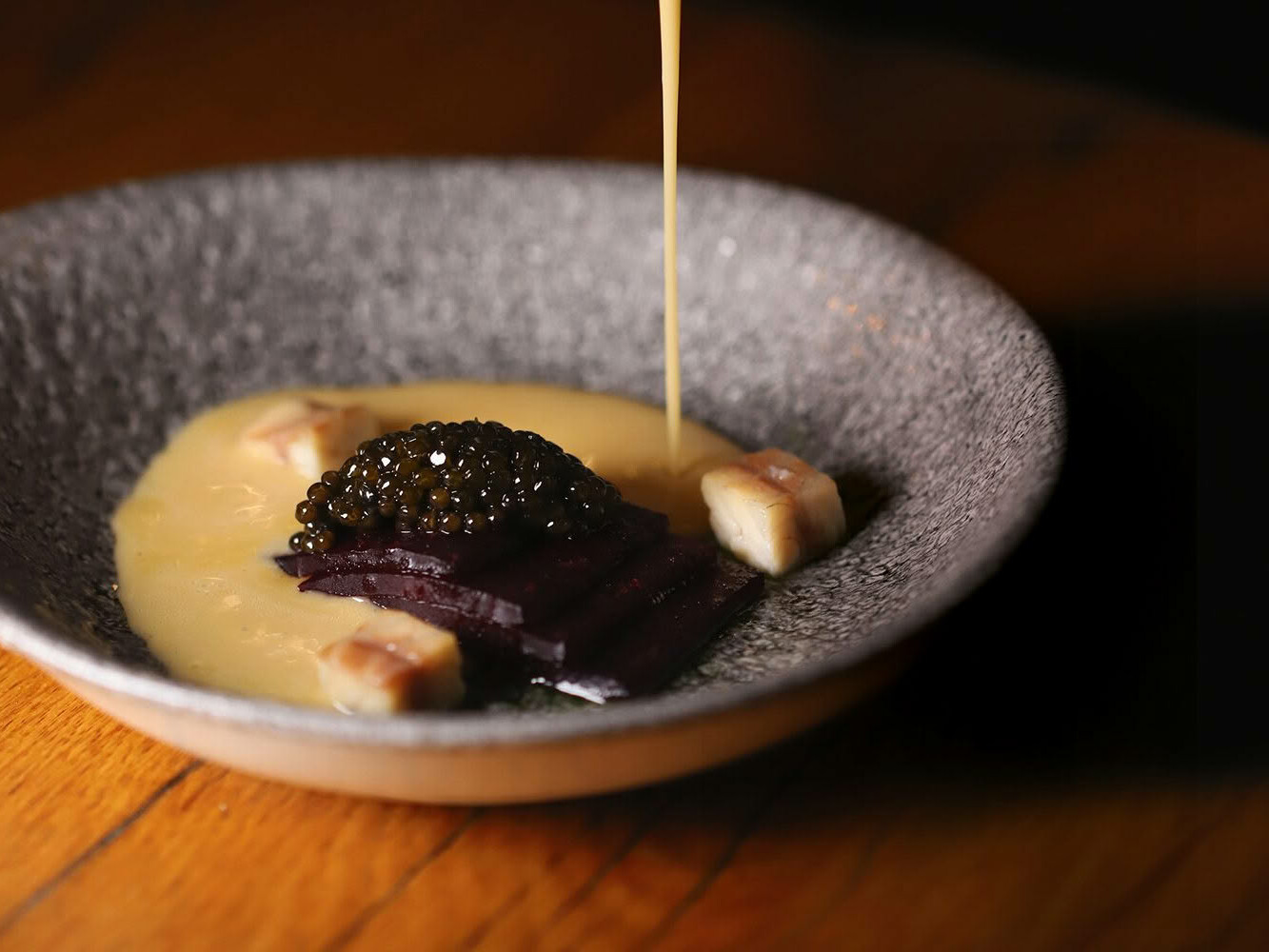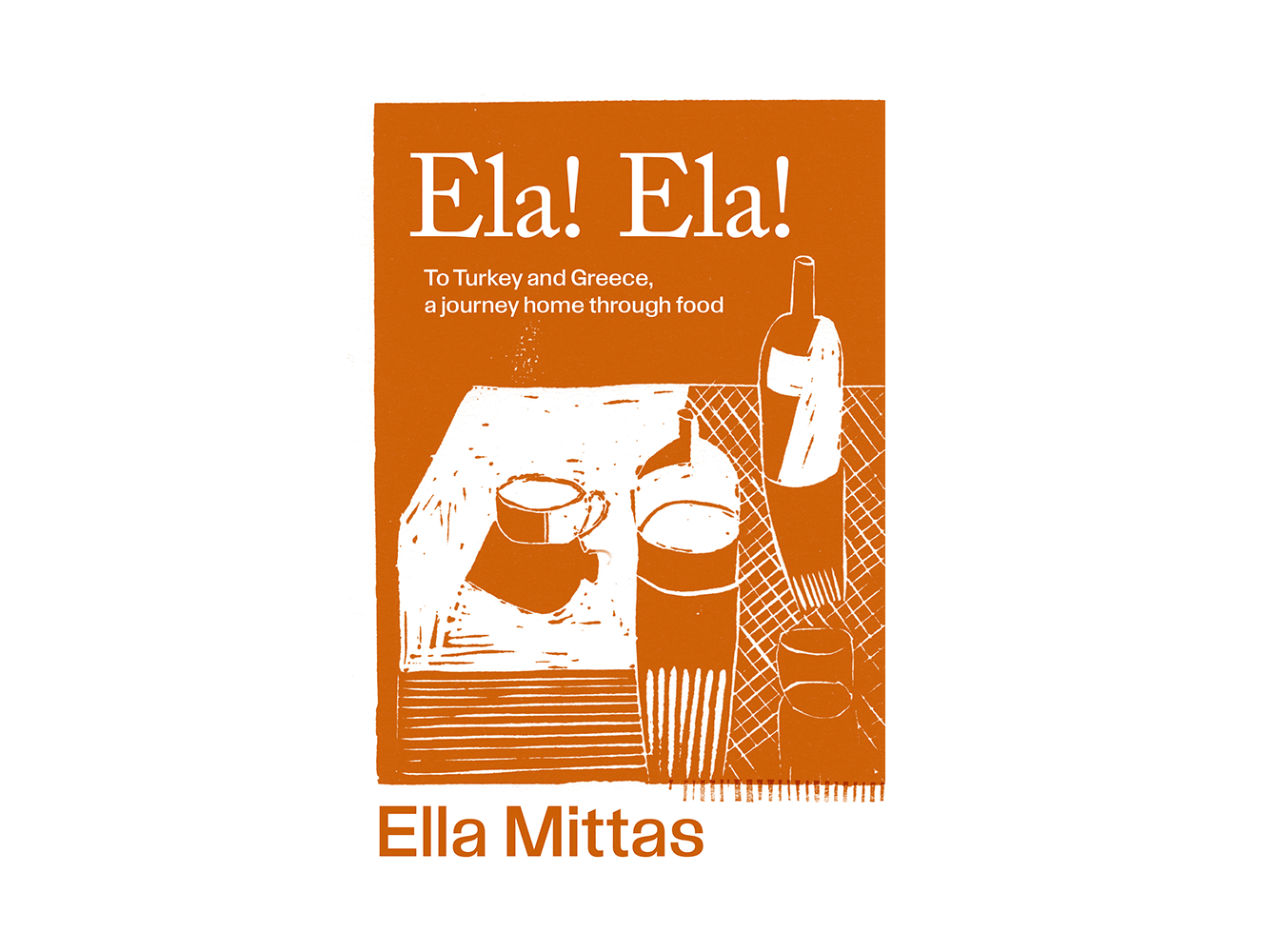TRACY WHITMEY FINDS OUT ABOUT LIFE ON THE ICE.
If you thought making your packed lunches was complicated, spare a thought for Chef Stephen Fairie. The packed lunches he provides for colleagues have to be planned in explicit detail: no chicken, no egg, and every last salad leaf has to be scrutinized minutely. It’s not that people are picky eaters, but, you see, Stephen is chef at Scott Base in Antarctica where biosecurity is of prime importance and everyday cooking poses some unique challenges.
Scott Base, New Zealand’s only Antarctic research station, lies at the southern end of Ross Island. It’s 3500km south of Dunedin and 1350km from the South Pole. In summer, temperatures range from 4°C to -30°C, while winter can be -40°C to -45°C, though wind chill can make it as cold as -67°C.
So why sign up for a year in Antarctica? “Why not! It’s one of the most beautiful places in the world,” says Stephen. “I’m fascinated by Antarctica and its history, explorers Scott and Shackleton and so on, so it was a once-in-a-lifetime opportunity.”
Stephen spent 15 years as a baker in the UK and New Zealand before training as a chef. His previous role – which will be held open for him while he is on the ice – as a chef at a youth justice facility in Rolleston near Christchurch, has given him exactly the skills required for the chef- cook-baker role at Scott Base. They weren’t looking for a cheffy-chef but needed someone who could create three nourishing meals a day for a shifting roster of up to 100 people, under sometimes difficult conditions. And someone who could cope with living in close quarters with strangers, spend months on end in the dark and adapt to living and working in an environment where those winter temperatures can be brutal.
He arrived in Antarctica in September 2017 and will stay until October 2018. In summer the base is a busy place, bustling with a crew of 60-100 scientists, field trainers and support staff. In winter, Stephen says, with just 12 people it’s a lot more relaxed. “There’s more of a family environment. Food brings everyone together and, like in any home, the kitchen is the centre of the base. The fridge is open to everyone to help themselves, and they can come into the kitchen and cook. I’ve been teaching people to bake bread, and one guy has started his own sourdough starter.”
Right now it’s the middle of winter. The last sunset was 25 April, then twilight lasted for four weeks before two months of full dark began in late May. Twilight will return in late July before the sun finally comes over the horizon on 19 August.
“I’m coping pretty well with the darkness, though some people struggle. I found the summer’s 24-hour sunlight more disconcerting. In winter we have a light room and take vitamins, and we all look out for one another.”
One result of those staggeringly low winter temperatures is that the two shipping container freezers are turned off as food remains frozen by itself and a 2kw heater has to be installed in the fridge to keep the food above freezing point.
Unable to just pop to the shop for a last-minute ingredient, one of Stephen’s biggest challenges is the scarcity of fresh fruit and vegetables (freshies). These are flown in every two weeks or so in summer, though in winter two months can go by between deliveries. When we speak, the plane due to make the delivery that day had just been cancelled due to bad weather: if a flight is delayed by several days a complicated juggle begins in Christchurch, to remove any items that may have started to deteriorate and replace them with fresh freshies. For the last delivery they got just one small chilly bin of lettuce and tomatoes. “Everyone is looking forward to this delivery of freshies,” Stephen says. “We’ve got a couple of guys just hanging out for a salad or an orange.”
Although some other food can be delivered by plane, air freight is very expensive so it’s reserved for those precious freshies. For the rest of the supplies, they rely on a once-a-year delivery by boat which usually arrives in January or February. One skill Stephen had to brush up very quickly was stock- taking and planning ahead, to order the food needed for the coming winter right through to the next summer. When the new chef arrives in September they are stuck with the supplies ordered by the previous chef and have to make the best of it. Stephen discovered that a previous chef disliked the pickled pork and corned silverside ordered by his predecessor but loved having a steak night every week. Consequently, Stephen has little steak but an awful lot of pickled pork to use up. “You have to think about the next guy who’ll be coming along, and be respectful,” he says. ”You try to make good decisions for other people who will come after you, but who you will never meet.”
Now, back to those chicken sandwiches. Biosecurity is hugely important and as well as his chef duties, Stephen is the base’s biosecurity officer. If any non-indigenous animals, plants, seeds, micro-organisms or non-sterile soil were introduced into Antarctica it could pose a serious risk to the environment and to the wildlife. So it’s to protect the penguins that base staff go to such great lengths to make sure that every scrap of chicken meat or eggs, stays safely on base and nowhere near the bird colonies. Even chicken blood or fluids cannot just be rinsed down the drain, in case any pathogens should survive the ozone waste-water treatment system and escape into the ocean, from where it could infect the penguins.
Everything that comes on the ice has to be minutely checked, to ensure that no foreign pests have snuck in. That means scrutinising every lettuce leaf and piece of fruit – if even so much as a green fly is found it has to be euthanised (by spray, not squashing!) bagged up and sent to the lab in Christchurch for analysis. This also affects the types of vegetables that Stephen will order. “There are vegetables we will not order, like leeks, due to soil build up in their layers, and we state when we order lettuce and cabbage that the outer leaves need to be removed and washed, and that there’s no soil on root vegetables.”
This risk of contamination is also why no fresh fruit or veges are grown on the base. Hydroponic growing has been tried before but the experiment had to be abandoned as rogue organisms began living in the hydroponics water.
In case you’re wondering, the waste chicken blood is frozen and shipped back to NZ at the end of every summer, along with almost all other waste produced on the base that season. “Waste is the enemy,” Stephen tells me. For the chef this means considering the waste implications of day-to- day decisions, such as ordering meat deboned and skinless, minimising orders of oranges and banning bananas, encouraging people to take small portions but come back for more rather than leave uneaten food, and the judicious use of left-overs.
When not at work there are plenty of ways to fill the days. There are plenty of walks around the base and team members are encouraged to get out. Even in the winter dark it’s possible to go out so long as you cover all exposed skin, and take a head light and a radio.
McMurdo Base (the US Antarctic research centre) is just 3km away over the hill, and the teams often socialise. Even in winter they are regular guests at each other’s tables. Stephen says, “At mid-winter we had 60 McMurdo guests for dinner, then the next night we went there for their mid- winter dinner. And if you’re feeling a bit cooped up it’s good to get away to McMurdo for a bit of space.”
To get off base and explore, the field trainers also run familiarisation trips out onto the ice and Stephen has been able to follow his love of history by visiting some of the historical huts left behind by the early polar explorers. Conservation work by the New Zealand Antarctic Heritage Trust has restored the deteriorating huts, giving insight into how those pioneers lived and worked on the ice, with tins of food still on the shelves, socks hanging on a makeshift washing line, and scientific instruments set out neatly on the bench as if the scientists had just popped out for a moment. “It’s awesome to see the old huts, I feel so honoured to visit them, Stephen says. “There’s evidence of the dogs they used and sleds and even Shackleton’s autograph on a bunk.” He was fascinated to see the remains of penguin eggs and pallets of seals that had been killed for dog food, evidence of the very different standards from today.
Stephen has three boys back in Christchurch, one aged 15 and 12-year-old twins. “It’s hard to be away, but I try to phone every other day. There would never have been a perfect time to come, but they said, ‘You need to do this, Dad.’ For a time, the people here become your family. You’re here and the outside world is there, but you do have an end date.”
So when his year is up, he’ll head back to the mainland. “I’ll probably go straight to the West Coast and go bush for a few days, to just listen to the birds and smell the air. Here there are no trees, no grass, and no smells. When people go home they say that there’s colour everywhere, it’s a full attack on the senses.”
SEE MORE FROM CUISINE
Suculent where the sauce is the soul
As in any thriving city, hotspots come and go and with so much to…

